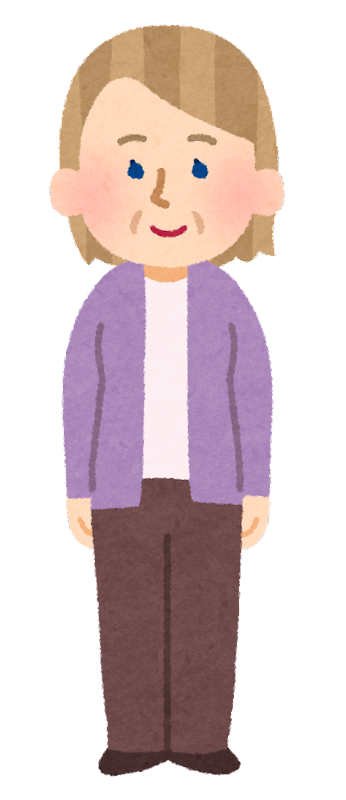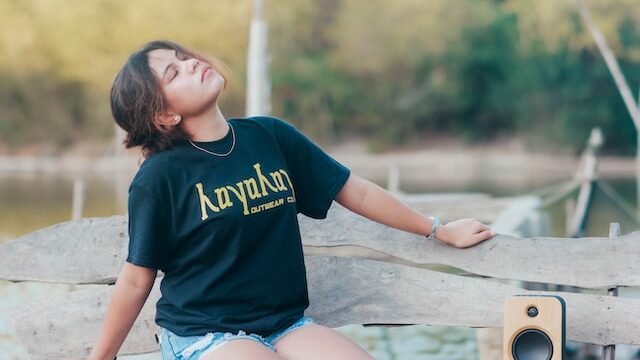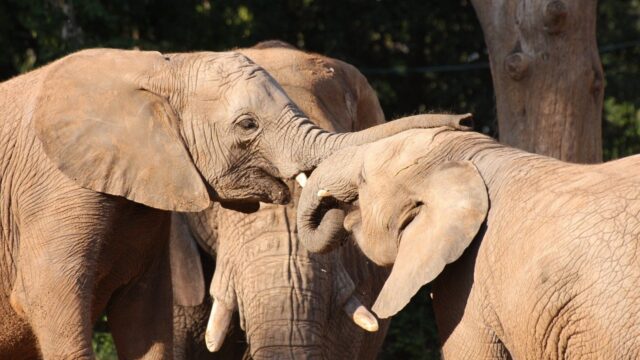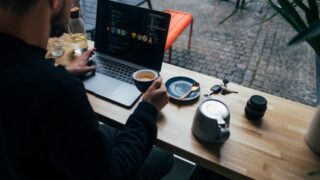ライフハックとしてではなく、英語学習にも極めて有用なのが、著名人が10分程度のプレゼンを行うTEDです。
TED Talksとは、あらゆる分野のエキスパートたちによるプレゼンテーションを無料で視聴できる動画配信サービスのことです。10年ほど前にサービスが開始されてから、政治、心理学、経済、日常生活などの幅広いコンテンツが視聴できることから人気を集めています。
RareJob English Lab
TEDは4000を超える膨大な数の動画があります。しかし慣れないうちは、動画の探し方や視聴のコツが分かりませんよね。この記事では、数多くのTEDを見てきた管理人(塩@saltandshio)が、心を揺さぶられたトークをあらすじと一緒にご紹介します。
ビジネス英会話を効率よく身につけたい方におすすめスクール
シェーン英会話
シェーンは1977年の創業以来、ネイティブ講師が英語を英語で教える「直接教授法」を採用しています。首都圏におけるスクール拠点数は、ネイティブ講師の英会話スクールでNo.1。駅から近いスクールが多いので通いやすく時間を有効に使えます。
スピークバディ パーソナルコーチング
1日1時間の短期集中トレーニングで、あなたの英語力向上をコーチが全力でサポートします。あなたの英語の世界が、劇的に変わります。
カレ・アンダーソン: チャンスを生み出す人になろう
私たちの誰もが、自らの能力を生かして、人生で有意義なことをしたいと願っています。でも、どうやったら始められるのでしょうか?(そして、もしあなたがシャイならどうしますか?)作家のカレ・アンダーソンが長年患ってきた自身の内向性について告白し、周りの人たちの才能や情熱を生かす手伝いをすることで、どのように自分の世界を広げたのか語ります(約10分)。
[PR]無料体験レッスン実施中!全国208校、創業40年の老舗英会話スクール【シェーン英会話】アピールするのは「自分」のためか「自分たち」のためか
カレ・アンダーソンは、幼い時から病的な恥ずかしがり屋でした。周りの人に極度の恥ずかしがり屋というレッテルを貼られて育ったカレ・アンダーソンは、内向的な性格と作家をしている職業柄、人間観察をよくするようになります。やがて、周りの人たちを見ていくなかで、カレ・アンダーソンは人には2パターンのタイプの人間がいることに気が付きます。
「自分」について話す人と、「自分たち」について話す人です。
「自分」について話す人たちは、注目されたり認められることを強く望んでいる人です。対して、「自分たち」について話す人は、どんな状況においても「自分たち」について話す方法を見出し、「私たちの考え」を創り出す人です。
どちらが優れているというわけではありません。
カレ・アンダーソンは、常日頃から世界の再構想について考えを巡らせていました。多くの人が他人のために一緒に手を繋いで「チャンスを生み出す人」となって、それぞれの良いところを生かしていけば、きっと世界は良くなるはずだと彼女は考えていたのです。
[PR]まずは無料カウンセリング”続けるため”の オンライン英語コーチ「スピークバディ パーソナルコーチング」異分子同士を組み合わせることで新たな動きが生まれる
数年前に、カレ・アンダーソンはハリウッドのパーティーで、ある新進気鋭の女優と出会います。お互いにパブリックアートに興味があると知ると、その女優は、ロスアンゼルスの新しい建物には必ずパブリックアートを入れさせるべきだと、とても熱心にカレ・アンダーソンに話しました。
そんな彼女を見て、カレ・アンダーソンはある男性を紹介します。その男性は当時刑務所にいましたが、アートは人を巻き込み人と人を繋ぐべきという情熱を持った人でした。以前、カレ・アンダーソンが刑務所で講演した際に男性と出会い、たまたま彼の事を思い出したのです。
そしてもう一人、ジェームズという建築家も女優に紹介します。なぜなら、この三人はきっと良いチームになると思ったからです。事実、その通りになり三人はロスアンゼルスにアートのムーブメントを起こしました。
[PR]知って得する、知らないと損をする!すぐに役立つ相手に合った「伝え方」のコツ!自分はどんなチャンスを作り出せる人になれるのか
こうした繋がりは、お金によって手に入れることは出来ません。
皆さんに考えていただきたいのは、私たちがどんなタイプのチャンスを作り出す人になれるかです。というのも、富や、立派な肩書きや、人脈の広さ以上に大事なのは、お互いの長所を繋ぎそれを生かす私たちの能力だからです。
これが簡単だとは言いませんし、誰かと繋がろうとしてやり方を間違えた方も多いでしょう。でも、私が提案したいのはこれがチャンスだということです。
What I’m asking you to consider is what kind of opportunity- makers we might become, because more than wealth or fancy titles or a lot of contacts, it’s our capacity to connect around each other’s better side and bring it out.
And I’m not saying this is easy, and I’m sure many of you have made the wrong moves too about who you wanted to connect with, but what I want to suggest is, this is an opportunity.
カレ・アンダーソンがこのような考え方を持つようになったのは、ウォール・ストリート・ジャーナル誌で記者をしていたときに経験した、ある出来事がきっかけでした。
[PR]検定試験合格者累計140万人!スマホ対応☆国家資格ほか資格取得ならSMART合格対策講座共通の興味や行動によって周りの人たちと繋がりを持つ
当時、カレ・アンダーソンはさまざまなジャンルの垣根を越えた、『流行』に関する記事を担当していました。その記事を書くために、彼女は全く別世界の人たちとの繋がりが必要だったのです。さらに、読者の生活に『流行』がどう影響するかについて、読者目線で記事を書かなくてはいけませんでした。
この仕事をこなしていくうちに、自然とカレ・アンダーソンはチャンスを生み出す人がやっていることを自分に取り入れていたのです。
アメリカではいま、自分と似た人と仕事をしたり遊ぶ人が増えています。しかしこれは由々しき事態だとカレ・アンダーソンは言います。なぜなら、価値観が似た人と一緒にいると、どうしても考えが凝り固まって極端な考えに走りがちになってしまうからです。
いつの時代もチャンスを生み出す人は、自分とまったく違うタイプの人たちに積極的に会いに行きます。そうして新たな人間関係を築くのですが、価値観の違う相手だからこそ、彼らはお互いに信頼できる関係性を結びます。そうして多種多様な人材を集めて信頼を寄せてプロジェクトを行うことにより、彼らはより多くのチャンスを掴んでいるのです。
彼らは「違うこと」を恐れません。むしろ、そこに魅力を感じます。それは考え方の大きな変化であり、一度それを感じたら、それをもっと実現したいと思うでしょう。
They’re not affronted by differences, they’re fascinated by them, and that is a huge shift in mindset, and once you feel it, you want it to happen a lot more.
混沌とした時代の中で、いま私たちに求められているのは、より価値あるものを生み出すために様々な人と新たな関係性を結ぶことではないでしょうか。
[PR]しちだの魔法ペンなら35日でバイリンガルに!楽天4部門1位の英会話!<七田式>まとめ:「違うこと」で多くのチャンスを生み出そう
個人であれ、団体であれ、他の人と協力し合うことは、私たちにとってきっと最高の経験になるでしょう。そうした経験を得たことで得られる互いの信頼関係こそ、今の世の中で必要とされていることなのです。
さいごに、チャンスを生み出す人の3つの特徴をお伝えします。
- 自分の一番の長所に常に磨きをかけて、パターンを探す
- 自分たちの世界とは違う世界に足を踏み入れて、信頼を得る
- お互いに関心のある分野の要所を繋ぐため、コミュニケーションをとる
一人一人が持つ最高の才能をもっと生かして、個人でできる以上の大きなことを一緒に成し遂げる。それが世界を再構想するということであり、これからの時代に求められていることだとカレ・アンダーソンは言います。
最後に、デイブ・リニガーの格言をおくります。「持ち寄りパーティーに 自分のフォークだけ持ってくるようではダメです」
Just remember, as Dave Liniger once said, “You can’t succeed coming to the potluck with only a fork.”
あなたが世の中にシェア出来るスキルは、必ずひとつはあります。それを多くの人と協力して分け合うことで、きっと世界はより良いものへと変化していくことでしょう。
英語全文
I grew up diagnosed as phobically shy, and, like at least 20 other people in a room of this size, I was a stutterer. Do you dare raise your hand?
<全文を読む>▼クリック▼
So my idea to reimagine the world is to see it one where we all become greater opportunity-makers with and for others. There’s no greater opportunity or call for action for us now than to become opportunity-makers who use best talents together more often for the greater good and accomplish things we couldn’t have done on our own. And I want to talk to you about that, because even more than giving, even more than giving, is the capacity for us to do something smarter together for the greater good that lifts us both up and that can scale. That’s why I’m sitting here. But I also want to point something else out: Each one of you is better than anybody else at something. That disproves that popular notion that if you’re the smartest person in the room, you’re in the wrong room.
So let me tell you about a Hollywood party I went to a couple years back, and I met this up-and-coming actress, and we were soon talking about something that we both felt passionately about: public art. And she had the fervent belief that every new building in Los Angeles should have public art in it. She wanted a regulation for it, and she fervently started — who is here from Chicago? — she fervently started talking about these bean-shaped reflective sculptures in Millennium Park, and people would walk up to it and they’d smile in the reflection of it, and they’d pose and they’d vamp and they’d take selfies together, and they’d laugh. And as she was talking, a thought came to my mind. I said, “I know someone you ought to meet. He’s getting out of San Quentin in a couple of weeks” — “and he shares your fervent desire that art should engage and enable people to connect.” He spent five years in solitary, and I met him because I gave a speech at San Quentin, and he’s articulate and he’s rather easy on the eyes because he’s buff. He had workout regime he did every day. I think she was following me at that point. I said, “He’d be an unexpected ally.” And not just that. There’s James. He’s an architect and he’s a professor, and he loves place-making, and place-making is when you have those mini-plazas and those urban walkways and where they’re dotted with art, where people draw and come up and talk sometimes. I think they’d make good allies. And indeed they were. They met together. They prepared. They spoke in front of the Los Angeles City Council. And the council members not only passed the regulation, half of them came down and asked to pose with them afterwards. They were startling, compelling and credible. You can’t buy that.
What I’m asking you to consider is what kind of opportunity- makers we might become, because more than wealth or fancy titles or a lot of contacts, it’s our capacity to connect around each other’s better side and bring it out. And I’m not saying this is easy, and I’m sure many of you have made the wrong moves too about who you wanted to connect with, but what I want to suggest is, this is an opportunity. I started thinking about it way back when I was a Wall Street Journal reporter and I was in Europe and I was supposed to cover trends and trends that transcended business or politics or lifestyle. So I had to have contacts in different worlds very different than mine, because otherwise you couldn’t spot the trends. And third, I had to write the story in a way stepping into the reader’s shoes, so they could see how these trends could affect their lives. That’s what opportunity-makers do.
And here’s a strange thing: Unlike an increasing number of Americans who are working and living and playing with people who think exactly like them because we then become more rigid and extreme, opportunity-makers are actively seeking situations with people unlike them, and they’re building relationships, and because they do that, they have trusted relationships where they can bring the right team in and recruit them to solve a problem better and faster and seize more opportunities. They’re not affronted by differences, they’re fascinated by them, and that is a huge shift in mindset, and once you feel it, you want it to happen a lot more. This world is calling out for us to have a collective mindset, and I believe in doing that. It’s especially important now. Why is it important now? Because things can be devised like drones and drugs and data collection, and they can be devised by more people and cheaper ways for beneficial purposes and then, as we know from the news every day, they can be used for dangerous ones. It calls on us, each of us, to a higher calling.
But here’s the icing on the cake: It’s not just the first opportunity that you do with somebody else that’s probably your greatest, as an institution or an individual. It’s after you’ve had that experience and you trust each other. It’s the unexpected things that you devise later on you never could have predicted. For example, Marty is the husband of that actress I mentioned, and he watched them when they were practicing, and he was soon talking to Wally, my friend the ex-con, about that exercise regime. And he thought, I have a set of racquetball courts. That guy could teach it. A lot of people who work there are members at my courts. They’re frequent travelers. They could practice in their hotel room, no equipment provided. That’s how Wally got hired. Not only that, years later he was also teaching racquetball. Years after that, he was teaching the racquetball teachers. What I’m suggesting is, when you connect with people around a shared interest and action, you’re accustomed to serendipitous things happening into the future, and I think that’s what we’re looking at. We open ourselves up to those opportunities, and in this room are key players and technology, key players who are uniquely positioned to do this, to scale systems and projects together.
So here’s what I’m calling for you to do. Remember the three traits of opportunity-makers. Opportunity-makers keep honing their top strength and they become pattern seekers. They get involved in different worlds than their worlds so they’re trusted and they can see those patterns, and they communicate to connect around sweet spots of shared interest.
So what I’m asking you is, the world is hungry. I truly believe, in my firsthand experience, the world is hungry for us to unite together as opportunity-makers and to emulate those behaviors as so many of you already do — I know that firsthand — and to reimagine a world where we use our best talents together more often to accomplish greater things together than we could on our own. Just remember, as Dave Liniger once said, “You can’t succeed coming to the potluck with only a fork.”
Thank you very much. Thank you.
<閉じる>
\ ほかにも気になるトークが満載! /








